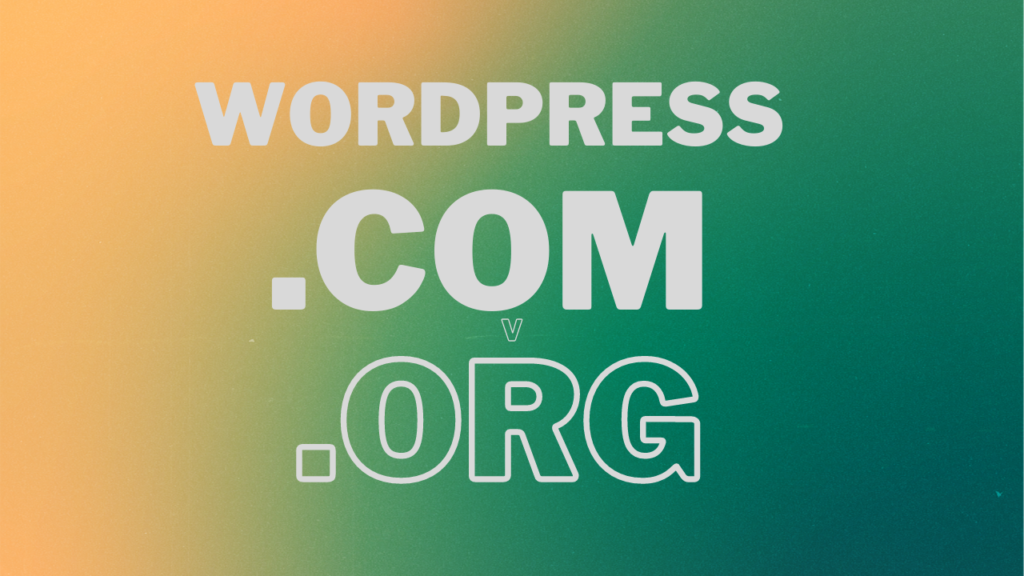WordPress.com v WordPress.org ?

The word ‘WordPress‘ can actually mean different things in different contexts so it’s worth spending a little time digging into that a little.
WordPress
WordPress itself is the open-source content management publishing platform. It is a software application written in the PHP programming language.
The word ‘WordPress’ is trademarked so you will not normally see it used in domain names of third party companies. E.g. the WordPress specific hosting company is called ‘WPEngine‘ (and not ‘WordPressEngine’). And our WordPress help group and live events are call #TheWPshow and not ‘The WordPress Show”).
WordPress.org
You can freely download the code from WordPress.org and do what you want with it (e.g. install it on your own website hosting or even change/amend the code). Most businesses don’t do that as a web design company (such as us!) will handle all of that for you.
WordPress.org is also home to the officially registered repository of themes & plugins (though you can install themes and plugins which are not registered here).
WordPress.com
WordPress.com often confuses people.
WordPress.com is the official hosted version of WordPress and it is run by the people who originally wrote WordPress (and own the trademark, hence the domain name).
With WordPress.com you get to use a flavour of WordPress that has been shrink-wrapped into a hosting solution. A most obvious difference is that you cannot upload themes or plugins (on the lower level plans at least); this itself can be an issue for most business WordPress sites as this can be quite constraining.
You can create an account at WordPress.com for free (though they reserve the right to show ads your site). There are also paid accounts which offer more services and fewer restrictions.
In the last 10 years, I can count on one hand the number of sites (typically small ones) we’ve built on WordPress.com. Typically we would find that environment too constraining and instead we prefer to create bespoke themes and host with someone WordPress specific like WPEngine or FlyWheel.
However, that is not to knock WordPress.com – that more constrained environment can be a blessing as it means less can go wrong and also the support/hosting is not your issue. I happily had my old JOELHUGHES.COM blog on WordPress.com for many years.
Final Thoughts
I would say for most businesses, WordPress.com is too constraining and, instead, they need to host WordPress themselves. However, like with everything in the WordPress universe – if you can work within the constraints & adapt to them, then you can get the best of both worlds.
